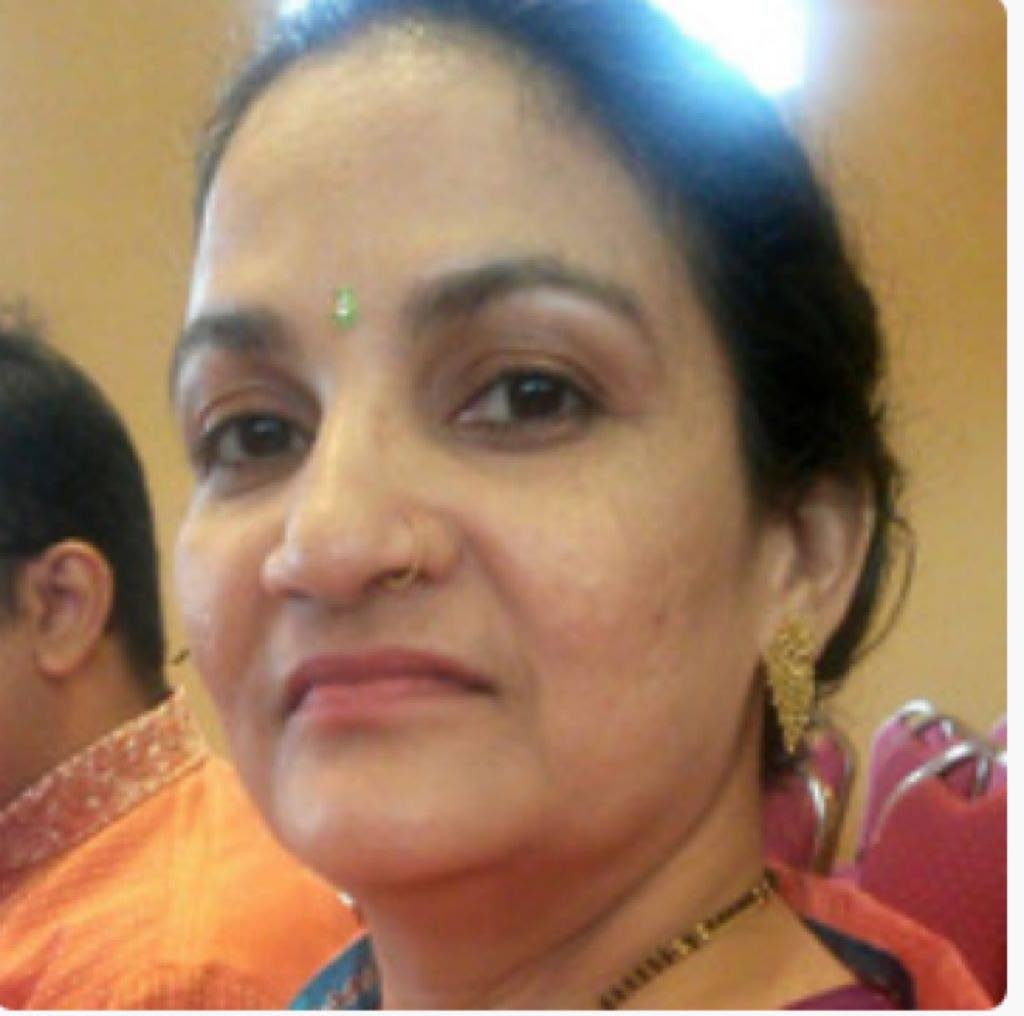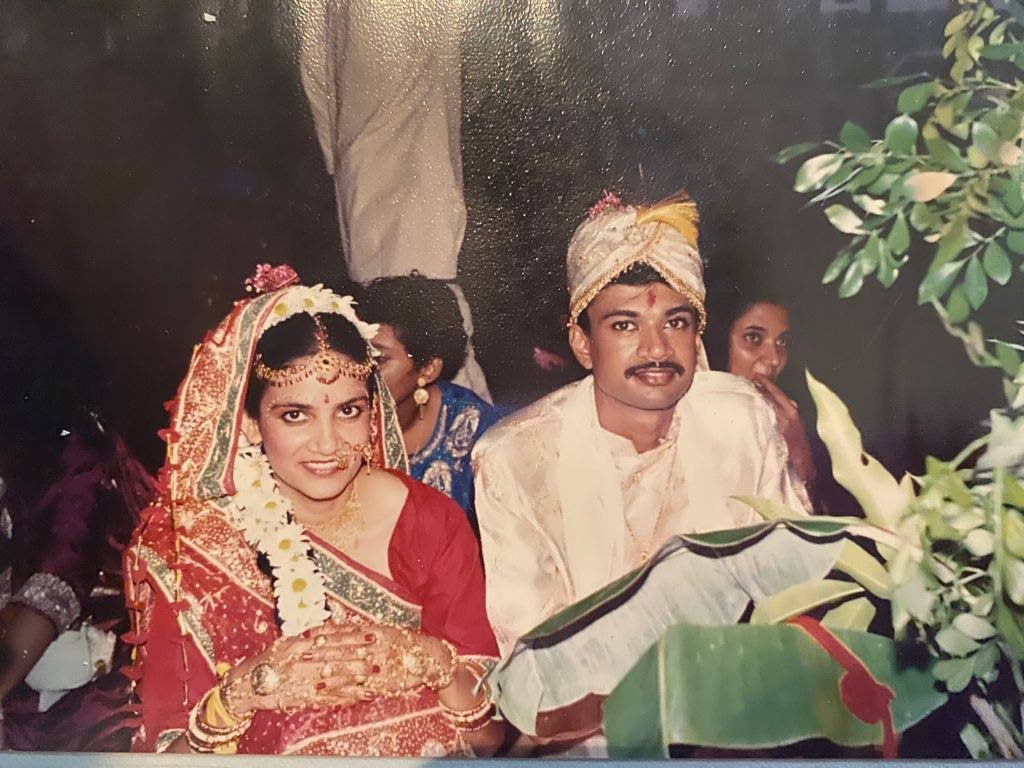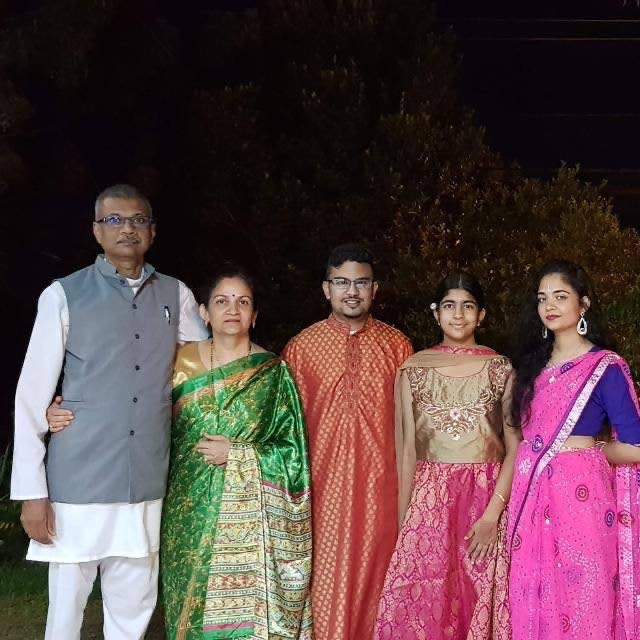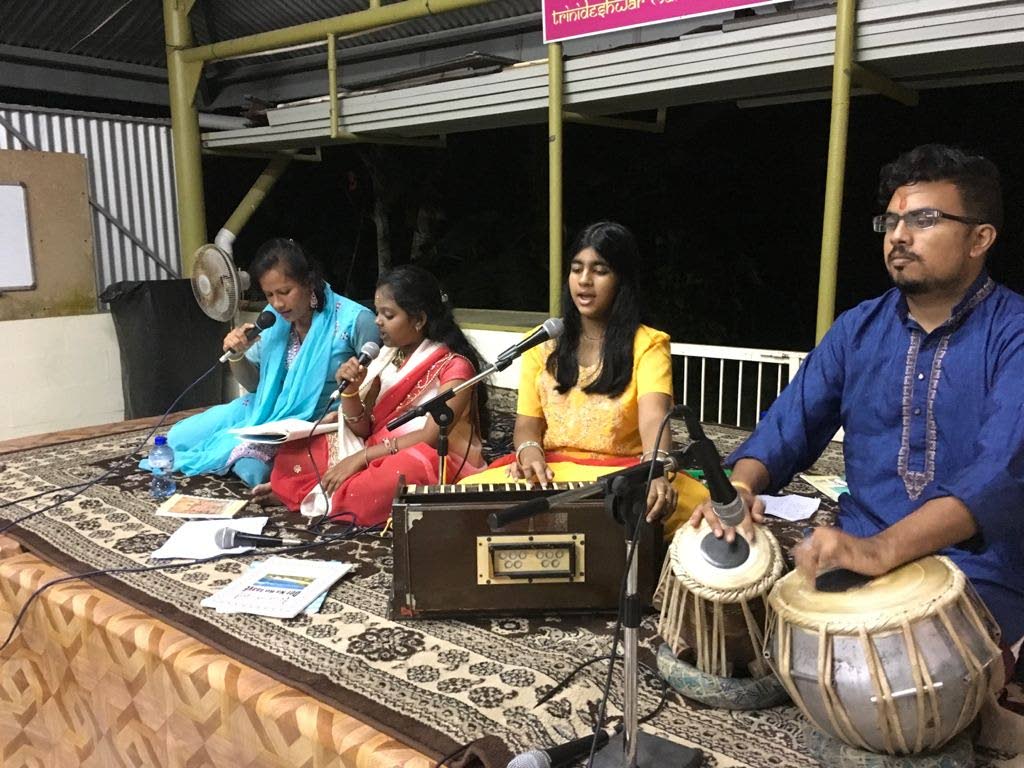Gayatri Maharaj: Teaching treasured Hindu traditions at home and in school

Schoolteacher Gayatri Maharaj has been doing her part to pass on Hindu traditions and culture to her children just as they were passed on to her by her mother, from one generation to the next,
“Really, the role of the woman is very important especially when it comes to upkeeping culture,” she said. “If the women don’t insist that their children be a part of it, everything falls down. That is what I am seeing, although there are some really strong men who know what they want for their families and would also direct,” she said in a candid interview from her home in Biche.
Maharaj and her husband, Pundit Rickie Maharaj, are the parents of two young adults and a teenager – Jyoti, a law student and author of two novels; Rajkamal, who is studying for accountancy qualifications; and Divya who will be sitting CSEC (form five exams) this year.
From birth, her children have been exposed to the Hindu traditions, embracing the spiritual enlightenment through their guru, the late Prof Hari Shankar Adesh, founder and director of Bharitiya Vidya Sanstthaan (BVS Institute of Indian Knowledge).
They have also mastered the Hindi language, play classical instruments and take an active role in the many festivals.
Her family also manages a school which teaches Hindi and classical music. Maharaj plays the harmonium and sitar. Her girls also play the harmonium and sing, and her son sings and plays the tabla.

“My husband also plays all those instruments and also sings.
"We all support each other, which is key to passing on traditions and maintaining the traditional lifestyle.
“We perform as a group with other disciples and since the lockdown we have been doing monthly
satsang (singing and discussions on topics affecting daily lives) via Zoom.”
Her family, she said, start and end their days with a natural routine of devotion, exercises, yoga and hearty vegetarian meals she learnt to make from both her mother and mother-in-law. She has learnt to combine both women's methods of preparation to produce her own unique taste.
While Hinduism is considered the oldest religion in the world, Maharaj believes the customs deeply rooted in TT are being slowly replaced by the strong influence of western culture.
She attributes this, in part, to the changing role of the Hindu woman from being a domestic creature to a professional working woman who is longer in the home.

“Growing up in my home in Arima, there was always someone who was not working and at home to ensure that children do their morning and evening rituals and go to the temple.
“Now, with both parents working and women getting tied up with their jobs, there is no one to insist children maintain and follow the religious teachings.”
She observed before the pandemic, when the temples were open, the congregation consisted mainly of women, and there was an absence of children.
She said children, bogged down by homework and other activities are not made to go to the temples or engage in traditional events, as parents give them the option to choose.
“Parents jump into their vehicles and go to the temple, leaving their children at home, so the children are not exposed to the point where they feel comfortable with their traditions and are losing them.”
As time passes and society evolves, Maharaj has dedicated her life to making her children feel comfortable in their own skin, by keeping the culture and traditions alive.
Her beliefs have also transitioned into her classroom at Shiva Boys' Hindu College, Penal, to help shape her young charges so that they have an appreciation and awareness of their rich ancestry and the benefits which can be derived from the teachings of the holy scriptures in the Ramayana and the Bhagavad Gita.

Non-Hindu students are also taught to embrace the teachings for their enlightenment.
“Growing up, it was the women in the home that insisted that these things be done. The men did not care less.”
Fortunately, that disparity is not the case in her married life, as she found support from her husband and his father.
“Over here, (in her home) my husband and his father are strong advocates for culture and incorporating it in their families. It is what they preach and naturally practise. They are also trying their best to reach out to the men to ensure they take a more active role in ensuring that their children come to the temple.
“It is really a family thing, but if the women continue with their focus on their profession – which is important – and neglect incorporating the values of the culture and tradition in their children’s lifestyle, then there will be no legacy to pass on.”
Usually on Indian Arrival Day, her family take part in a march which culminates in a cultural event. With the pandemic and rules against congregating, she said her family will make their traditional sweets and gather at home to watch Indian movies.

Comments
"Gayatri Maharaj: Teaching treasured Hindu traditions at home and in school"